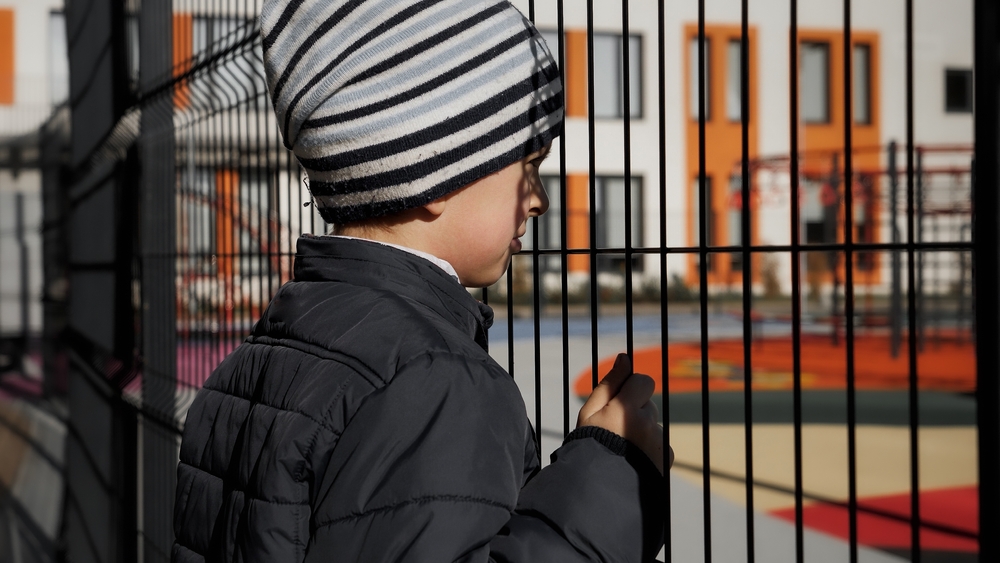Are you unintentionally suffocating your child’s development? Good intentions aside, even loving parents can cross the line into overbearing territory. Let’s take an honest look at common behaviors that may seem supportive but can actually sabotage your child’s independence and self-esteem.
1. You plan every single second of their time.

If you find yourself obsessively scheduling every minute of your child’s life, from the moment they wake up to when they go to bed, it’s a sign you might be too controlling. According to the Center for Children and Youth, children thrive on a balance of structured activities and free time. They need opportunities to make their own decisions, explore their interests, and simply relax. Over-scheduling not only robs them of these valuable learning experiences but can also lead to stress and resentment.
2. You value success over everything.

If you’re constantly pushing your child to be the best in every aspect of their life, from academics to extracurriculars, you might be setting the bar too high. It’s natural to want them to succeed, but too much focus on achievement puts unnecessary pressure on them and also sucks the joy out of experiences that are meant to be fun. Children need to understand the value of hard work and perseverance, but they also need to know that it’s okay to fail and that their worth isn’t solely defined by their accomplishments. Try to find a healthy balance here.
3. You don’t allow them any privacy.
 provided by Shutterstock
provided by Shutterstock
Invading your child’s privacy on a regular basis, whether it’s reading their diary, monitoring their online activities without cause, or insisting on knowing every detail of their social life, can be damaging. While it’s important to keep them safe, children and teenagers also need a sense of privacy to develop trust and independence. Respect their need for personal space and create an environment where they feel comfortable coming to you voluntarily with their problems and experiences.
4. You make all their choices for them.

If you’re in the habit of making all decisions for your child, from what they wear to who they should be friends with, you’re depriving them of essential life skills. According to Psychology Today, decision-making is a critical ability that children need to develop through practice and experience. By allowing them to make choices appropriate for their age and facing the consequences, you help them become more self-reliant and confident in their judgment.
5. You don’t trust them.

Exhibiting a lack of trust in your child, such as doubting their honesty without reason or constantly believing they’ll make mistakes, can and will strain your relationship. Trust is foundational in any relationship, and showing your child that you believe in their ability to make good decisions reinforces their self-esteem and encourages responsible behavior. It’s about finding the right balance between guidance and freedom.
6. You ignore their voice.

Regularly dismissing your child’s opinions, feelings, or preferences can make them feel frustrated and insignificant. It’s really important to listen actively to what they have to say and validate their emotions. This doesn’t mean you’ll always agree or give in to their demands, but acknowledging their perspective fosters open communication and respect.
7. You constantly criticize them.

While constructive feedback is necessary for growth, constant criticism can be detrimental to your child’s self-image and confidence. Focus on encouraging their strengths and achievements while addressing areas for improvement in a supportive manner. Celebrating their successes, no matter how small, and offering guidance instead of criticism, can motivate them to strive for self-improvement while knowing they have your support.
8. You’re way too involved in their social life.

Getting too involved in your child’s social interactions, from choosing their friends to managing their social engagements, can hinder their social development. Children need to learn how to navigate social dynamics, make friends, and sometimes, deal with conflicts on their own. While guidance is important, especially in teaching them about healthy relationships and boundaries, they need the freedom to explore social connections and learn from their experiences.
9. You’re always trying to solve their problems.

Jumping in to solve every problem your child faces, from a simple homework question to a playground disagreement, denies them the chance to develop problem-solving skills. Facing challenges and learning to find solutions is essential for building resilience and independence. Encourage your child to think critically about problems and come up with solutions, only offering support and guidance when truly needed.
10. You set unrealistic goals for them.

Imposing unrealistic expectations, whether academic, athletic, or personal, can lead to undue stress and a fear of failure in your child. It’s important to set achievable goals that challenge them while still being within reach. Celebrate the effort and progress, not just the outcome, to instill a growth mindset and the understanding that improvement and learning are continuous processes.
11. You completely ignore or downplay their interests.

Ignoring or belittling your child’s passions and interests because they don’t align with your values or expectations can diminish their sense of self-worth. Encouraging your child to pursue their interests, even if they’re different from your own, shows that you value their individuality and support their pursuit of happiness.
12. You shield them from even the slightest hardships.

While it’s natural to want to protect your child from pain and disappointment, overprotecting them from life’s hardships can prevent them from learning important life lessons. Experiencing setbacks, making mistakes, and facing consequences are all part of growing up. Providing support and empathy, while allowing them to navigate these experiences, prepares them for the complexities of life.
13. You don’t allow them to be independent.

If you’re reluctant to let your child do things on their own, from a simple task like packing their lunch to more significant milestones like choosing a college course, you might be stifling their independence. Gradually increasing responsibilities and freedoms helps children and teenagers develop self-reliance and confidence in their abilities.
14. You’re hyper-focused on their safety.
 provided by Shutterstock
provided by Shutterstock
It’s important to keep your child safe, but being excessively cautious and restricting their activities due to fear of injury or failure can limit their experiences and growth. Encourage safe exploration and calculated risks to help them learn their boundaries and capabilities, fostering a sense of adventure and curiosity.
15. You’re always on their case.

If you find yourself constantly nagging or reminding your child about tasks, responsibilities, or behaviors, it may be counterproductive. This can lead to resentment and a lack of motivation. Instead, establish clear expectations and consequences, and encourage self-discipline and accountability. Celebrate their successes in managing responsibilities to reinforce positive behaviors.








